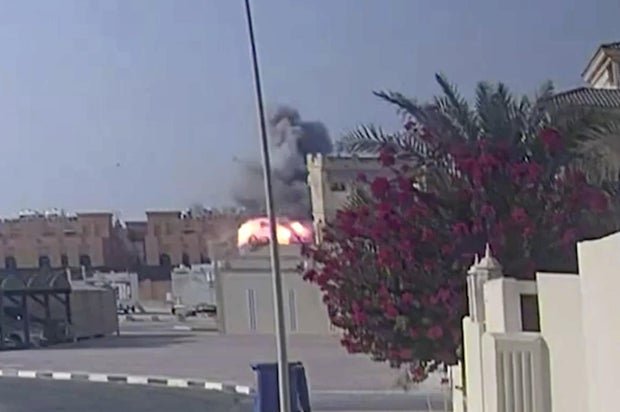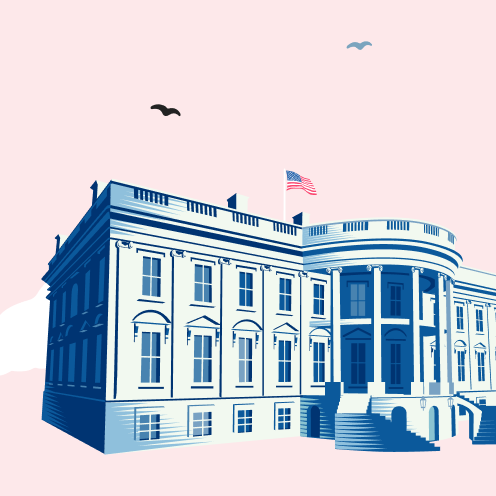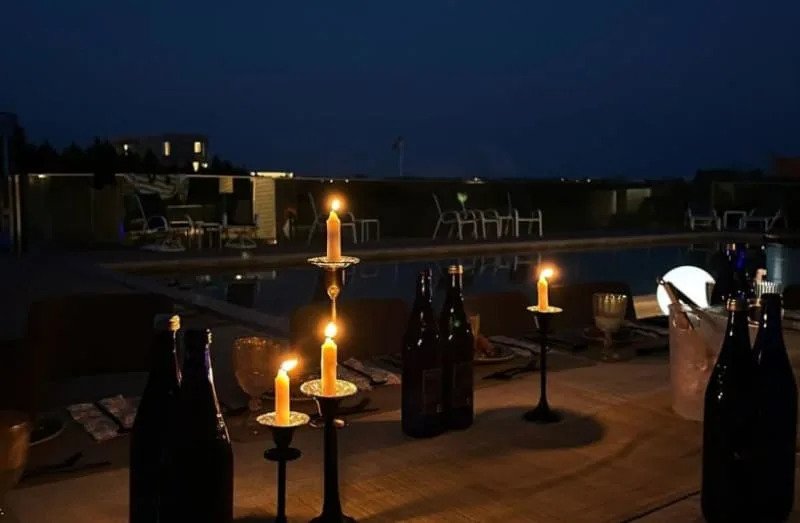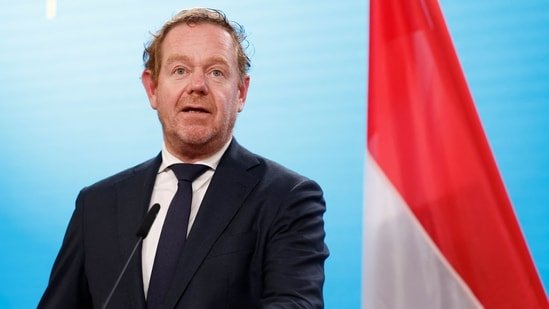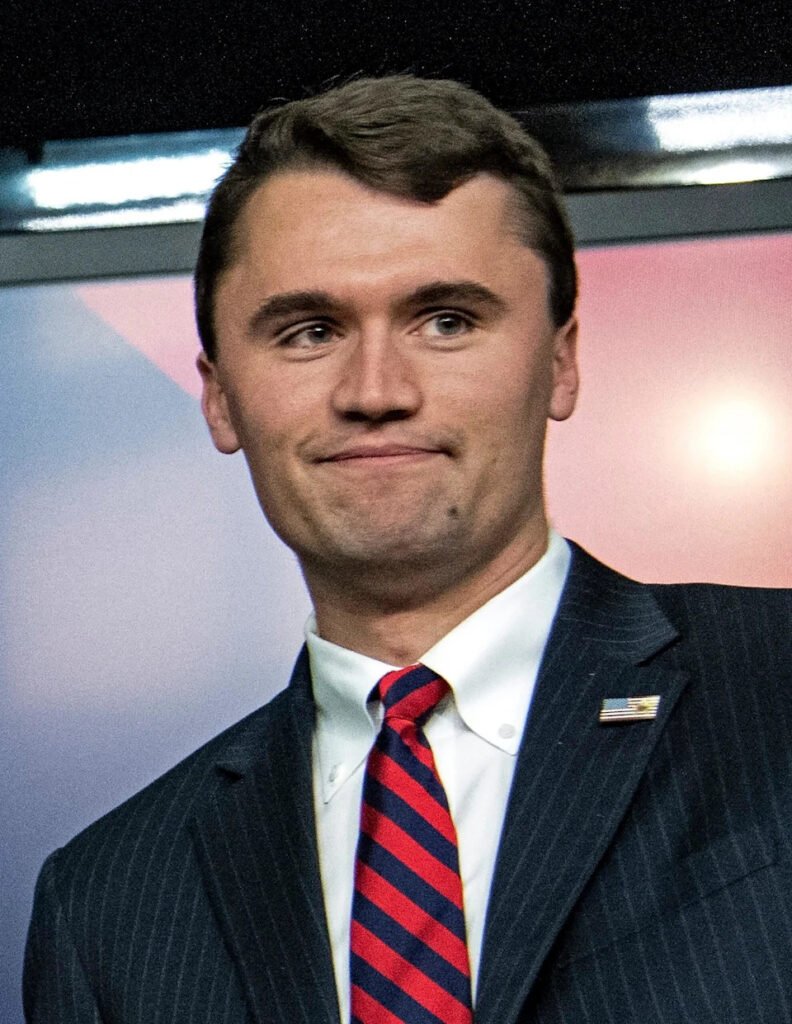More than a dozen people have been killed and hundreds injured during youth-led protests in Nepal sparked by a government ban on social media platforms, widespread corruption, and poor economic opportunities.
Security forces deployed live ammunition, water cannons, and tear gas during protests in several cities, in which authorities said at least 19 people were killed, according to news agency Reuters.
Nepal, a Himalayan country of 30 million people, is known for its turbulent politics and has seen more than a dozen governments since it transitioned to a republic after abolishing its 239-year-old monarchy in 2008 following a decade-long civil war.
Still, the latest protests, which are led by people ages 13 to 28 – the cohort known as Generation Z – are Nepal’s worst unrest in decades and threaten to destabilize yet another government.
Protesters took to the streets again in the capital Tuesday in defiance of a curfew imposed on the city centre, and after the government lifted the social media ban. Photos by Reuters news agency showed protesters burning a police booth and furniture outside the office of the Nepali Congress, Nepal’s largest political party.
South of Kathmandu, in the municipality of Chandrapur, police fired into the air as protesters defied curfew to gather, a local official told CNN. Protesters also set a police car on fire, the source said.
Here’s what we know about the unrest roiling Nepal.

Anger against the government for what many view as rampant, decades-long corruption in Nepal was already simmering, and it spilled into the streets of the capital last week after the government blocked social media platforms including Facebook, Instagram, WhatsApp, YouTube and X, in a move that was widely criticized by rights groups.
The government had written new rules it said were needed to clamp down on fake news and hate speech and threatened to ban any social media companies that failed to register.
By midnight last Thursday, 26 platforms had gone dark, according to local media.
But organizers say the protests, which spread across the country, are not only about the social media ban but are also a reflection of generational frustration at poor economic opportunities.
The unemployment rate for youth aged 15-24 in Nepal was 20.8% in 2024, according to the World Bank.
Meanwhile, a viral online movement against “Nepo Kids” — politicians’ children showing off their lavish lifestyles — is fueling further anger by highlighting the disparities between those in power and regular Nepalis.
Nepal’s economy is heavily reliant on money sent home by Nepalis living abroad. More than a third (33.1%) of Nepal’s GDP came from personal remittances, according to the World Bank, a number that has steadily risen over the past three decades.
“All the Nepali citizens are fed up (with) corruption. Every youth (is) going outside the country. So, we want to protect our youth and make the country’s economy better,” a protester told Reuters.
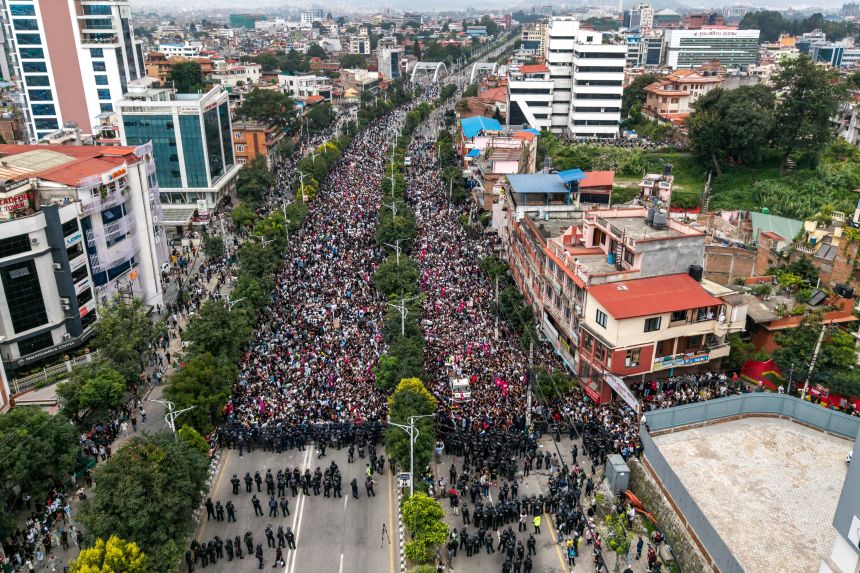
The protests turned violent Monday as protesters clashed with police at the parliament complex in Kathmandu.
Police fired rubber bullets and tear gas at thousands of young protesters, many of whom wore school or college uniforms, according to Reuters.
Protesters set fire to an ambulance and hurled objects at riot police guarding the legislature, Reuters reported, citing a local official.
“The police are firing indiscriminately,” one protester told Indian news agency ANI.
At least 17 people were killed in Kathmandu and two more in the eastern city of Itahari, according to hospital officials.
More than 400 people, including security forces staff, were hospitalized after suffering injuries on Monday, according to a report by Nepal’s health ministry.
International organizations swiftly condemned the lethal crackdown by police and called for an independent investigation.
The UN human rights office said it was “shocked” by the deaths of the protesters and urged a “transparent” investigation. It said it has received “several deeply worrying allegations of unnecessary” use of force by security forces during the protests.
“The use of lethal force against protesters not posing an imminent threat of death or serious injury is a grave violation of international law,” Amnesty International said in a statement.
Nepal’s Home Minister Ramesh Lekhak resigned Monday following the violence, Communications Minister Prithvi Subba confirmed to reporters late Monday.
Nepal’s ministers for agriculture and water also resigned over the government’s response to the protests, they wrote on social media.
The government also lifted the ban on social media platforms.
Nepali Prime Minister KP Sharma Oli said his government was “not negative toward the demands raised by the Gen Z generation” and said he was “deeply saddened” by the incidents on Monday.
In a statement, he blamed “infiltration by various vested interest groups” for the violence, without elaborating on who the groups were.
On Tuesday, Nepal’s biggest-selling newspaper called for Oli to step down, its editorial board arguing he “cannot sit in the PM’s chair for a minute longer” after Monday’s bloodshed.


